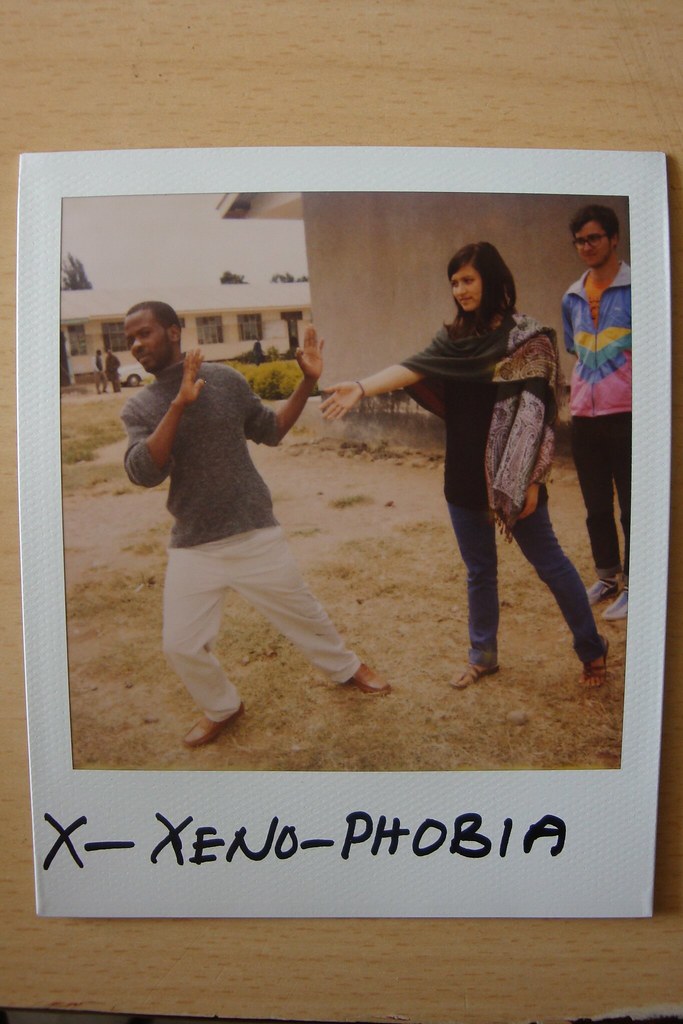
The photograph above is from a teacher workshop we held at Themi Secondary. The theme of the alphabet was History, and my group had S, T, U, V, W, and X.
S – Slaves
T – Trade
U – Union
V – Violence
W – Weapons
X – Xenophobia
(History alphabets in Tanzania are dominantly about War or Trade, every time.)
We got stuck on X and resorted to the dictionary, where one of the teachers found Xhote (a language spoken in South Africa) and Xenophobia. They chose the latter, simply because it’d be easy to photograph because hey-we’ve-got-a-mzungu-right-here! “You be in the picture, that’s easy!” (sigh) As in all LTP shootings, we try to give as little direction as possible to the actual construction of the image, so I was told what to do. Nick happened to be nearby, and just as they were about to shoo him out of the frame, they issued him back.
The image is comical, but also unsettling. I know that some people actually do feel this way about visitors. “Go back to your own country, we don’t want you here,” I was told on the street one day. To be fair, this was said after I refused to buy something, but the comment still stuck in my brain. Often I feel welcome, but there is almost always this tension, a mistrust or wariness. Of course I don’t go around stretching out my hand toward people aggressively (as the picture may suggest) but I look at it and see it as symbolic of one view of this type of international social service. I guess the key is to recognize when somebody doesn’t need or want you to be there. In most cases, I would say I’ve felt welcomed and appreciated, so long as I am open and flexible to things such as a constantly changing schedule (or complete disregard for “schedule”), cultural differences, and misunderstandings. When the approach is positive as such, it is no longer “service,” but more of an interaction between people learning from each other.
No comments:
Post a Comment